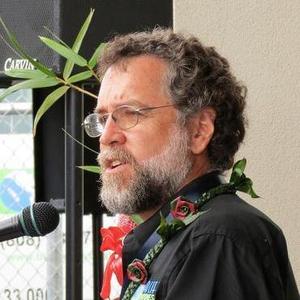Hawaii regulators approve biodiesel contract for HECO plants

Photo: Pacific Biodiesel Technologies
October 5, 2015
BY Pacific Biodiesel Technologies
The contract between Hawaiian Electric and Pacific Biodiesel Technologies to supply biodiesel for Oahu power generators has been approved by Hawaii regulators.
The two-year contract, which goes into effect November, is for a minimum of 2 MMgy and up to 3 MMgy. The renewable fuel is slated for use primarily at the 110-megawatt Campbell Industrial Park generation facility and the Honolulu International Airport Emergency Power Facility, yet could also be used at other Oahu power plants as needed.
The advanced biofuel will be produced at Pacific Biodiesel’s newest facility, Big Island Biodiesel, which began operations in 2012. “The new technology installed at Big Island Biodiesel enables us to process the most degraded feedstock into the highest quality biodiesel available in the United States,” said Robert King, president of Pacific Biodiesel. HECO previously contracted with Iowa’s Renewable Energy Group Inc., which supplied biodiesel from the mainland.
Advertisement
In its ruling, the Hawaii Public Utilities Commission noted that, along with a savings in cost, the locally produced biodiesel provided in this contract should positively contribute to the local economy. With more than 70 employees across the state, Pacific Biodiesel agrees. “Locally produced biodiesel provides consistent green jobs, along with energy security and displacement of fossil fuels,” King said. Pacific Biodiesel processes used cooking oil from Hawaii’s restaurants into biodiesel and looks to supplement this with locally grown oil crops in the future. The company anticipates that the increased demand for local biodiesel provided through this contract will eventually support the development of even more jobs and opportunities for the agricultural sector as well.
Since opening and operating the very first retail biodiesel pump in America, Pacific Biodiesel has built a solid reputation as a leading pioneer in the industry. Over two decades of constructing and operating biodiesel-processing plants, advancing process technology, and producing and marketing quality fuels have provided industry-leading accomplishments recognized at community, state and national levels. Throughout, Pacific Biodiesel’s vision has remained constant: to create truly sustainable, community-based biodiesel production facilities in order to maximize the economic and environmental benefits and minimize energy consumption.
Advertisement
Related Stories
Airbus is taking a significant step toward scaling the adoption of sustainable aviation fuel (SAF) by testing a new “Book and Claim” approach. This initiative aims to boost both supply and demand for SAF worldwide.
Signature Aviation, the world’s largest network of private aviation terminals, has announced the expansion of its blended SAF offering at six new locations across Europe following multiple blended SAF supply agreements.
Virgin Australia has entered an agreement with Viva Energy to SAF for its flights departing from Proserpine, Queensland. The SAF will consist of Jet A1 and a 30-40% synthetic blend component made from waste and residue feedstocks.
The largest single volume order of sustainable aviation fuel (SAF) by a DB Schenker customer has been placed by Mercedes-Benz. The order is for approximately 13,000 metric tons of SAF and is expected to reduce CO2 emissions by 40,000 metric tons.
ADM and Loyola University Chicago Searle Biodiesel Lab have joined the expanding B20 Club. Founded in 2014, the B20 Club is a partnership between the Illinois Soybean Association and American Lung Association.
Upcoming Events










